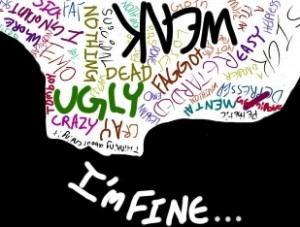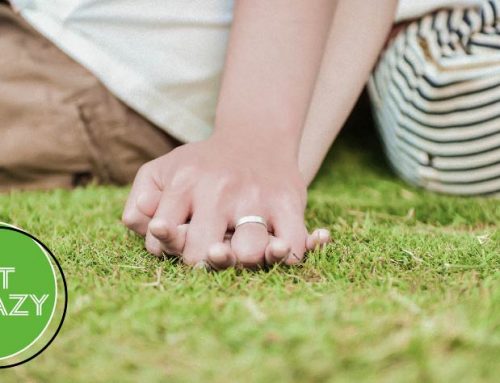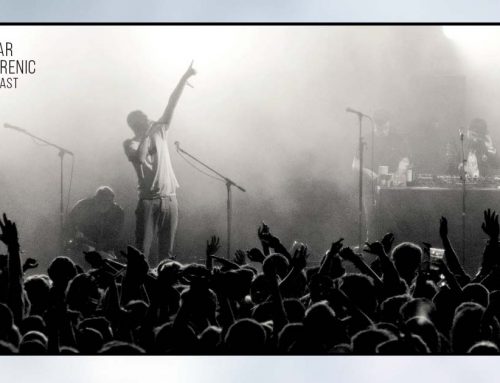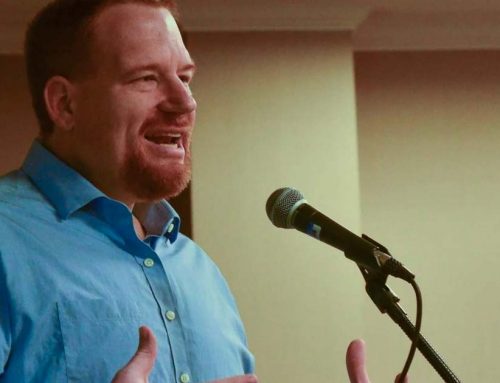Social etiquette is an important thing for society, and that includes such things as asking, “How are you?” when we greet others. As a person with bipolar disorder, I don’t have any special exemption from answering that question in any way other than, “Fine.”
There are three main moods that most people with bipolar will experience at any given time: bipolar mania, baseline, and depression. As we all know, “fine” can mean different things, based on our moods. Here are my truthful answers based on each of those moods.
Bipolar Mania: How Are You?
When I am manic (not very happy, not excited, not hypomanic), there is only one truly honest answer to the question: “I am a god from the planet Awesome. I’m better than you. And I can shoot happiness from my eyes into your soul.”
Then, over the next five minutes, in dramatic and rapid fashion, I will tell you my amazing plans. I’ll tell you how to fix everything wrong with the world, and what incredible, exceptional, and amazing rock-star caliber thing I am getting ready to do. At some point, I will forget what I’m talking about and rush off to do said rock-star caliber thing and — who knows? — I may actually succeed.
I will make no sense, but trust me when I say you’ll love it – and me – right up until it goes horribly wrong. That generally happens around the next morning, long after everyone has gone home.
Bipolar Depression: How Are You?
 The more depressed I am, the less likely you are to get any answer at all, both because I simply won’t have the energy and because I’ll be holed up alone somewhere away from your ability to ask. But, if we did come into contact and I did have the energy to answer, I would tell you I feel nothing.
The more depressed I am, the less likely you are to get any answer at all, both because I simply won’t have the energy and because I’ll be holed up alone somewhere away from your ability to ask. But, if we did come into contact and I did have the energy to answer, I would tell you I feel nothing.
Describing “nothing” is difficult and confusing. There is no analogy that is truly fitting. It can’t be described as the absence of something, much in the same way describing darkness as the lack of light doesn’t really help someone understand.
Specifically, I say: “I have no energy. I have no desires. If I were to die right here, right now, I wouldn’t care, mainly because I lack the motivation to care one way or the other. I feel nothing for myself. I feel empty, as does the world around me. I feel abandoned, alone, and broken. I have no belief in future happiness, nor any recollection of happy times in the past. And all this seems perfectly normal to me.”
Bipolar Baseline: How Are You?
Depression and mania are symptoms that anyone with bipolar disorder has experienced to some extent. However, living in recovery, which is the goal, means I spend most of my time in the middle. My moods still exist on a spectrum, but the spectrum is a lot narrower. My depression is manageable and I’m able to continue moving forward, even if at a slower pace.
moving forward, even if at a slower pace.
I am still excitable, but mania is almost completely wiped out. I function, day to day, pretty much the same as everyone else, just with a chronic health condition to manage. This takes work, but life for most people takes effort. This is just my lot.
So when someone asks how I am, you might be surprised to know that the answer, nine times out of ten, is “traumatized.” My exact answer would be:
“I’m scared, worried, and I know that I’m going to get sick again and be left alone or be a burden to my loved ones. The emptiness I’ve felt, the suicidal feelings, the loss, the abandonment, and the failure are still living inside me. Since the illness is still with me – albeit controlled – the potential for it to come back and torture me again is very real. And that terrifies me.”
The reality is that my daily life is hard because I have to move forward with the trauma of my past weighing me down. I am scared of ending up back where I started. I’m scared of losing everything. I’m scared of hurting myself or others emotionally. I’m scared of making my granny cry again.
So that’s why I answer, “Fine.” It’s the easy answer. But never has a little word carried so much hidden meaning.
This article previously appeared on Psych Central as The Bipolar Disorder Definition of “I’m Fine”.







This is EXACTLY how I feel, and sometimes I can’t find the words. So thank you for being an illuminating voice.
Thank you for reading and being awesome. 🙂